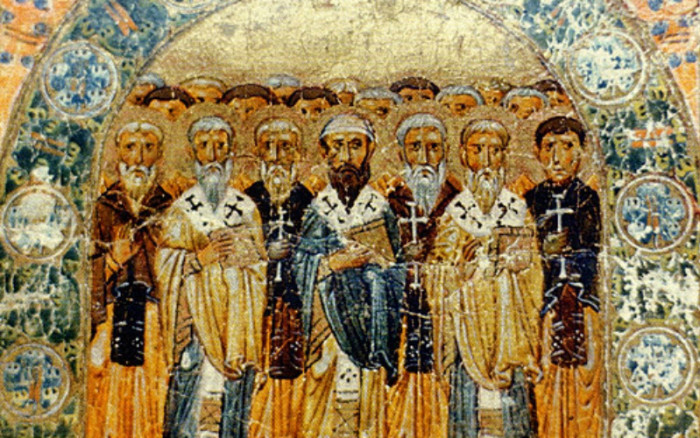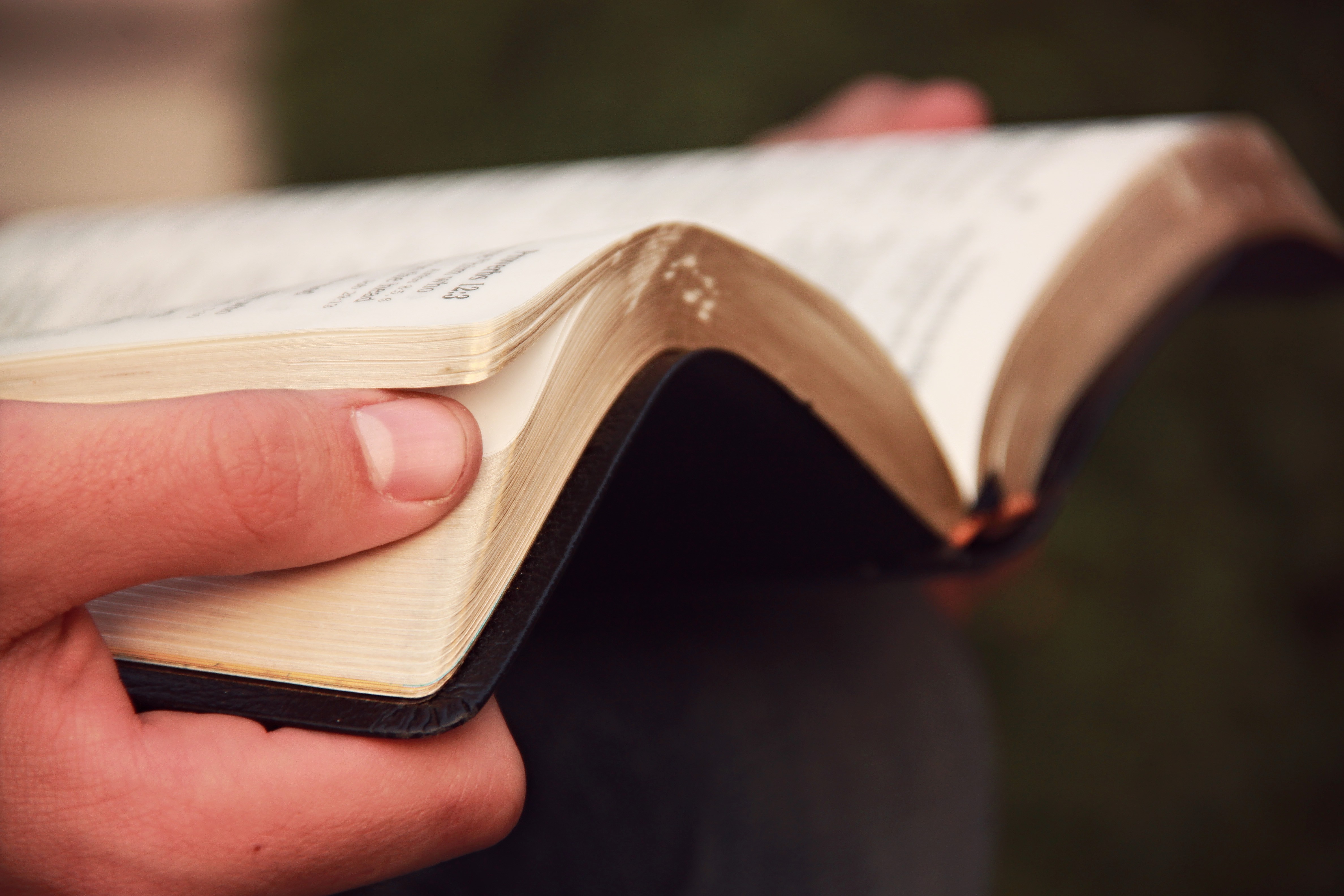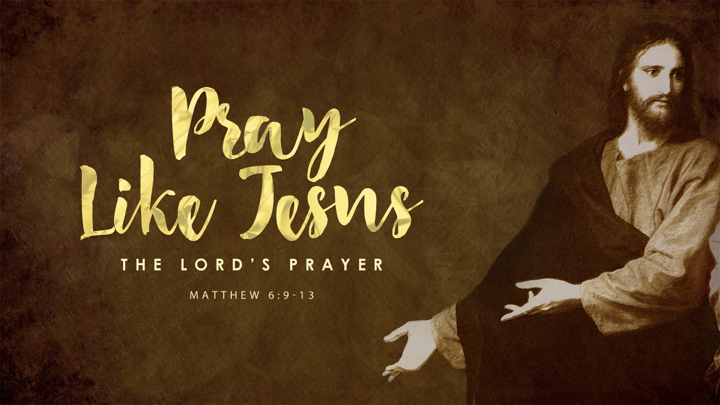28
Feb '19

Hope Springs Eternal
28
Feb '19

Tomorrow is March 1st. Here in Central Virginia, there’s a Winter Weather Advisory for tonight and talk of a couple of possible snowstorms both early and late next week. Next Wednesday is Ash Wednesday, the beginning of the liturgical season of Lent. This is almost as late as Ash Wednesday can be, so usually by this time we’re a few weeks into Lent and already looking forward to Holy Week and Easter Sunday. Lent is an Old English word that means “springtime.” Apparently, spring is taking it’s sweet time coming this year.
I’ve found that it doesn’t take much to give me hope. Did the sun come out in February? Time to break out the shorts and t-shirts, even if the temperature is in the 30s and there’s snow in the forecast. Did the Redskins score a touchdown? Pretty sure they’re going to the Super Bowl. Did the Cardinals win a spring training game? The World Series is a lock. I could go on, but I think you get the picture.
There’s a great story in the Bible about this kind of ridiculous hope. Israel has been locked in a nasty drought for about three years. Elijah has just won an incredible victory over Ahab and the prophets of Ba’al, and then this happens:
And Elijah said to Ahab, “Go, eat and drink, for there is the sound of a heavy rain.” So Ahab went off to eat and drink, but Elijah climbed to the top of Carmel, bent down to the ground and put his face between his knees.“Go and look toward the sea,” he told his servant. And he went up and looked.“There is nothing there,” he said.Seven times Elijah said, “Go back.”The seventh time the servant reported, “A cloud as small as a man’s hand is rising from the sea.”So Elijah said, “Go and tell Ahab, ‘Hitch up your chariot and go down before the rain stops you.’” (1 Kings 18:41–44)
I wonder how many times over those three years of drought had folks looked and seen a cloud, the size of a man’s fist, on the horizon and wondered if this might be the cloud that brings the rain. But no rain came. And I wonder how the servant felt being told to go look seven different times. But then there is a cloud, and Elijah knows that the rain is coming – torrents of rain, in fact (1 Kings 18:45-46). I am sure that Ahab, Elijah’s servant and everyone else thought Elijah’s hope was ridiculous.
Of course, God had already told Elijah that the rain was coming, so his ridiculous hope was grounded in knowledge and trust (1 Kings 18:1). But is our hope any less so? Far from it. Well, hoping the Redskins will go to the Super Bowl because they score a touchdown…yeah, that’s ridiculous. But seeing a new crocus plant breaking through the snow and being hopeful for spring? That’s a hope grounded in knowledge and trust. As the prophet Jeremiah writes,
Because of the LORD’S great love we are not consumed, for his compassions never fail. They are new every morning; great is your faithfulness. I say to myself, “The LORD is my portion; therefore I will wait for him.” The LORD is good to those whose hope is in him, to the one who seeks him; it is good to wait quietly for the salvation of the LORD. (Lam. 3:22–26)
Much like feeling a warm breath of wind on an otherwise cold winter day, or seeing the tulips beginning to break forth out of the ground, or the leaf buds on the trees, it is right and good to wait and hope for the salvation of the Lord. This is the way God often works. Spring has started long before we see any signs of it, even while everything we see is locked in the frozen cold of winter.
You may find yourself yearning for spring in your life, but locked in the frozen cold of depression, or the hurts of life, or a mess that maybe you had nothing to do with but swallowed you up anyway. Right now, trying to hold on to hope might seem ridiculous to you. But I promise, God is at work in ways you can not yet see and spring is coming. “See, I am doing a new thing! Now it springs up; do you not perceive it?” (Isaiah 43:18) Don’t give up hoping and trusting in the Lord – He hasn’t given up on saving and healing you.
Read more...
25
Feb '19

What 21st-Century Christians Can Learn From The Early Church – A Lent 2019 Table Talk Series
25
Feb '19

Those who study and observe the ebb and flow of culture say that we are no longer a “post-Christian” culture but have actually returned to a “pre-Christian” state. If that is true, we would do well to take a closer look at the Early Church and see what we can learn in order to more faithfully live and effectively share the Gospel of Jesus Christ.
Table Talk meets each Wednesday from 5:30-6:45pm.
Here’s what each week of this series will focus on:
March 13: “How the Early Church Was Made”
Acts gives us the “formula” for how the early church was made: the ministry of prayer and the power of the Holy Spirit. This first session will look at God’s blueprint for the church as laid out in scripture and illustrated in the first century. In matters as diverse as apostolic authority, church organization and discipline, and the confession of doctrine through creeds and hymns, we’ll explore how the “apostolic” and “sub apostolic” church was established. Whether it’s making a church, growing a church, or running a church, the divine formula is still the same today—prayer and the Holy Spirit.
March 20: “Going, Loving, Dying: The Missionary Church in Action”
The early church was a missionary church. It was a church that went to the ends of the earth, just as Jesus had commanded. The early church was also known for its love. In a groundbreaking study in 1996, American sociologist Rodney Stark argued that the early church grew in direct proportion to its love for others. Finally, the church evangelized by dying—that is, through the ultimate witness of martyrdom. Just as Jesus had commanded, the first believers “took up their cross” and followed Him. Christians today have been called to the same missionary task of going, loving, and dying to self.
March 27: “Lessons from the Catacombs”
Were you taught that the catacombs were places of refuge in times of persecution? Did you learn that the fish symbol was a secret message? Well, think again! There are many persistent myths about the catacombs. These burial places did, in fact, serve an important purpose in the early church—but it’s not entirely what you think. This session will explore the surprisingly rich world of catacomb art that will model for us a dynamic way of reading and applying scripture as we live for Christ in an ungodly world. The message of the catacombs is the message of Easter: Christ has triumphed over death!
April 3: “Contending for the Faith: Heresy and Orthodoxy”
The battle over “sound doctrine” was the defining challenge of the early church. To this day, we recite creeds that were formulated in direct response to false teachings. Docetism, gnosticism, Arianism—these heresies struck at the very heart of the gospel by redefining the person and work of Jesus Christ. In this session, we’ll not only explore these heresies in their historical setting; we’ll also see that these ancient heresies continue to rear their ugly head in the contemporary church in America. Christians today, no less than the earliest believers, have been called to contend earnestly for the faith.
April 10: “Constantine: The Church’s Worst Nightmare?”
On the evening of October 27, 312, Constantine was standing near the Milvian Bridge in Rome. As armies positioned themselves for a decisive battle, the emperor saw a vision that forever changed his life, the Christian Church, and the western world. But did he really see a vision? To this day, historians debate the facts and the significance of what happened—but the results were unmistakable. Constantine dramatically “converted” to Christianity and the status of the western church would never be the same. This session will explore what happens when the church makes common cause with politics.
April 17: “The Death Throes of Paganism”
By the end of the Roman period, Christianity had triumphed over paganism in Europe. Temples and idols were destroyed. Pagan institutions were shut down. Profane literature was censored and burned. But paganism proved to be remarkably resilient. The goddess Venus was repackaged as the Virgin Mary. Devotion to the pantheon of gods was replaced by prayers to the saints. This session will explore how Christians of every age must be vigilant in defending the purity of the church. This is particularly true for 21st-century Christians, who find themselves living in an increasingly neo-pagan society.
Read more...
01
Feb '19

Pastor’s Corner – February 2019
01
Feb '19

If you give a man a fish he is hungry again in an hour. If you teach him to catch a fish you do him a good turn. — English proverbBut Jesus answered, “It is written, “‘Man shall not live by bread alone, but by every word that comes from the mouth of God.’” — Matthew 4:4“All Scripture is God-breathed and is useful for teaching, rebuking, correcting and training in righteousness, so that the servant of God may be thoroughly equipped for every good work.” — 2 Timothy 3:16–17
Learning to Study the Scriptures
One of the core beliefs we hold as Christians is the authority and importance of the Bible. We believe it is divinely inspired, without error and fully authoritative for us and our lives. We also believe that Christians should regularly study and learn from the Bible. But much of how we do that is through sermons and Sunday school lessons, which usually involve someone (the preacher, for example) reading a passage, telling us (the congregation) what it means, and then how to apply it to our lives. It is, in many respects, a passive learning experience – knowledge and information is given to us to receive and absorb, and hopefully live. But we all learn best by doing ourselves, rather than someone doing the work for us (see the English proverb above).
Getting SOAPy
On Sunday evenings, the youth have started studying the books of the Bible. In doing so, we’re seeking to teach them not simply what the Bible says and means, but more importantly how to study the Bible for themselves. I think the technique we’re teaching them might be of benefit to you, particularly if you’ve struggled with how to study the Bible on your own. The method we’re teaching is an acronym called SOAP – Scripture, Observation, Application and Prayer. Here’s how it works:
Scripture
The first step is to identify a Scripture passage for study. It is generally good to Study one or two paragraphs – or about 6-10 verses — at a time. After selecting a passage, it is good to identify what Testament you are in (before or after Christ’s birth), and what kind of literature you are reading (history, law, prophets, poetry, gospel, letters). It is helpful to copy the passage or key verses into a journal, as this increases comprehension and sets the stage for learning. Remember: You can Google any book of the Bible for answers to simple questions about that book.
Observation
Observation is taking time to look at the passage and ask questions to learn what it is saying. What are the commands to obey or examples to follow? What are the promises to claim? What does it teach me about God, Jesus, or the Holy Spirit? Take time to identify questions you may have that will lead to additional study. Write your observations and questions in your journal. Consider using a Bible handbook or simple commentary for further study.
Application
Do not stop with observations; take time to make applications. Ask: How will this truth change me or my family? Where do I fall short and who can help me? What will I change in my attitudes, relationships, and behaviors? What must I do today as a result of this study? How am I strengthened and encouraged by this passage? Record your applications in your journal.
Prayer
Conclude your Bible study with prayer. Ask God to help you apply the passage to life. Where do you need God’s help or forgiveness? What are you thankful for in this passage of Scripture? Write the answers to these questions in your journal.
Learning to study the Bible is not difficult, but it takes practice and commitment. Like any good habit, the benefits of practicing regular Bible study, by yourself and in groups, make the effort of cultivating it worthwhile. It is my prayer that using a little SOAP in your study of the Bible will help you know God’s Word and its importance for your life.
Blessings,
Rev. David Garrison
Read more...
16
Jan '19

New Sunday School Opportunity – Beginning Sunday, January 27
16
Jan '19

Let me be up front: If you aren’t already attending a Sunday School class at Northminster, we’re inviting you (and your kids) to come to Sunday school. I suppose it’s kind of obvious that a pastor would make that request, but there’s more to it than that.. Let me explain.
I think most of us would agree that our faith is important to us, but when push comes to shove, we (yep, even me) tend to let the hustle-and-bustle of life crowd out the rhythms and practices of our faith. Before we know it, while still important, our faith has been moved to the back seat.
Jesus says in John 10:10 that he came so we might “have more and better life than we’ve ever dreamed of.” Being in the back seat of our life likely isn’t what he had in mind. And I think most of us would agree that while our lives might not be terrible, they probably aren’t exactly “more and better than we’ve ever dreamed” either.
Here are some things I know, mostly from what I’ve experienced in my own life:
- The closer I walk with Jesus, the closer I come to that “more and better life.”
- The more time I spend in God’s Word, the more grounded I am.
- The more I connect with other believers, the more hope I have.
I also know that, as parents, we want to pass on a faith to our children that is meaningful and valuable to them. Along those lines, I also know (again, from my own experience, but also from 20+ years of youth ministry) that there are three key components to passing the faith to our children effectively. They are:
- Teaching the full gospel of Jesus Christ (more than just “sin management” or whatnot),
- Parents being the primary ministers to their own children (don’t let this scare you), and
- Building as many intergenerational connections into kids lives as possible.
All of the above is why I’m inviting you to come to Sunday school. Beginning January 6, from 9:45-10:30, I’ll be teaching a new class that will meet in the Tatman Room. But actually, I would think of this as more of a “small group” type thing than “Sunday school.” There will be more discussion than lecture, more questions than dissertation. It’s an opportunity for us to dig into God’s Word together, to understand what it meant back then so we can better understand what it means right now, and to apply it to the nitty-gritty of our lives right now. The better we know God’s Word, the more we will know and live the Gospel, the easier it’ll be to share our faith with our kids through our lives. We’ll be starting out studying Paul’s letter to the Romans.
And that intergenerational part? Well, we happen to have a whole lot of folks in this church who would love the opportunity to love your kids in Jesus’ name. While we’re growing as disciples together, your kids will be being taught the Gospel as well and building those intergenerational relationships I mentioned a moment ago.
I know for many of you, Sunday morning is one of the few, precious opportunities you have to sleep in. I also know that getting the kids out the door to be at church by 9:45 can be a hassle. My intent is to make this class, as well as your children’s classes, worth the effort to be here.
I hope you’ll join us Sundays at 9:45 in the Tatman Room.
Read more...
15
Jan '19

Pastor’s Corner – January 2019
15
Jan '19

Rather train yourself for godliness; for while bodily training is of some value, godliness is of value in every way, as it holds promise for the present life and also for the life to come. (1 Tim. 4:7–8 ESV)
What’s Your Resolution?
This is the time of year that gyms and diet programs love, because we all seek to take advantage of the new year and the “fresh start” it provides. Year after year, at the top of the list sits resolutions to get healthier and lose weight. We know we need to take care of our bodies, that we just spent a month (or more) overeating and indulging, and that summer is just a few months away. Taking care of our physical health is important, and I applaud you if you’ve made such a resolution. But as Paul says in the passage above, are we as equally resolved regarding our spiritual health and well-being?
Lord, Teach Us To Pray
Just as with physical health, our spiritual health takes intentionality and commitment, and it begins with prayer. Prayer is a funny thing — most everyone has prayed at some point in time since they were a little child, and yet it’s also the one thing I hear that people struggle with more than most anything else. In fact, at one point even the disciples had to ask Jesus to teach them to pray: Now Jesus was praying in a certain place, and when he finished, one of his disciples said to him, “Lord, teach us to pray, as John taught his disciples.” (Luke 11:1 ESV)
Praying Like Jesus
We’re going to be intentional in learning to pray like Jesus prayed. On Sunday mornings through the course of the season of Epiphany, we’ll dig deeply into The Lord’s Prayer – a prayer we all say every Sunday, but many of us don’t fully understand what we’re saying about or asking of God. Then, through Lent and leading up to Easter, we’ll explore the prayer book of the Hebrews, the Psalms, and find guidance for some of the problem areas of prayer.
If you, like the disciples (and most of us if we’re honest), are looking for someone to teach you to pray, or maybe you could use some encouragement in your prayer life, I hope you’ll join us. May God bless you in this new year!
Blessings, Rev. David Garrison
Read more...
01
Dec '18

Pastor’s Corner – December 2018
01
Dec '18

Consumed by Consuming
I received my first email announcing Black Friday, the annual celebration of greed and gluttony that defines the day after Thanksgiving (a day of gratitude for all God has provided for us), on November 2. Not only that, but the email announced that the Black Friday deals were available NOW! Of course, for years the stores have been opening on Thanksgiving to offer Black Friday “doorbuster” sales (full confession: I went shopping on Thanksgiving to get one of those deals). The mentality that comes from shopping for the best deal leads to two consequences. First, we live in a state of perpetual dissatisfaction and discontent. Second, we apply the consumer mindset to other areas of life – we just keep looking for the best “deal” that will better meet our “needs.” We are a consumer-based culture. And we are being consumed by it. One might say we are literally selling our souls to satisfy our consuming.
A Prescription for A Better Way
There are times when something happens to our bodies, maybe a deep-set illness is discovered, and the doctor issues us a prescription for medicine to help return us to physical health. It often doesn’t happen overnight, but through faithfully following the prescription, over time we begin to notice a difference and feel better. Eventually, we are restored to full health. The prescription to our rampant consumerism is the Christian season of Advent. Advent comes from a Latin word that means “coming.” It is a 4-week season that leads up to Christmas and is meant to be a time of intentional reflection and preparation for the coming of the Messiah – both celebrating his first Advent 2,000 years ago, and hopefully anticipating his second coming. The giving of gifts (started by the Magi that first Christmas) is a good tradition, but this one aspect has taken over the entire season.
There are rituals and traditions surrounding our celebrations of Advent and Christmas. Some of those are particular to our families, others are more broadly practiced by churches or communities. Many of them have their roots in centuries past, or maybe they are new traditions only a few years old. The rituals of putting up and decorating the Christmas tree, of lighting the Advent candles (both in worship and at home as a family), of going caroling are all great ways to slow down this holiday (holy-day) season. Consider other activities and start new traditions that your family (both nuclear and extended) can practice and celebrate each year to move us deeper in our understanding of what this season is supposed to be about and find ourselves moving away from consuming and toward joy and contentment in Christ.
“I have learned to be content whatever the circumstances. I know what it is to be in need, and I know what it is to have plenty. I have learned the secret of being content in any and every situation, whether well fed or hungry, whether living in plenty or in want. I can do all this through him who gives me strength.” (Phil. 4:11–13)
Blessings,
Rev. David Garrison
Read more...
19
Nov '18

December Table Talk Series: Aspects of Advent
19
Nov '18

Our December Table Talk series will be “Aspects of Advent.” There is a lot of nuance and “hidden” depths to the Advent and Christmas stories that we miss because the biblical authors assumed certain cultural, historical and prophetic knowledge that has been lost in the 2,000 years since the stories were recorded. Michael Babcock and Pastor David will explore several of these different facets in an effort to enrich and deepen our understanding and celebration of the incarnation of our Savior. Upcoming topics include:
November 28: Fulfilling Prophecy – Dr. Michael Babcock
December 5: Politics of the Times – Rev. David Garrison
December 12: No Room in the Inn – Rev. David Garrison
December 19: Questioning Christmas – Dr. Michael Babcock
December 26 & January 2: No Table Talk
Read more...
01
Nov '18

Pastor’s Corner – November 2018
01
Nov '18

The End of the Year Is Upon Us
The end of the year is here! Perhaps you’re wondering if I mixed my months up – a distinct possibility! But no, I’m just looking at a different calendar. While the Gregorian calendar (the one we use on a daily basis) has two months left, the Christian calendar is drawing to a close.
The Spiritual Celebration of The King
The seventh angel sounded his trumpet, and there were loud voices in heaven, which said: “The kingdom of the world has become the kingdom of our Lord and of his Christ, and he will reign for ever and ever.” (Revelation 11:15)
Toward the end of this month the longest season of the Christian Calendar (called “Ordinary Time”) comes to a close. Ordinary Time is a season devoted to giving space to consider all the implications of God’s salvation in Jesus Christ for our day by day, week-in, week-out lives. But as the season moves on, and the chaos of the world presses in, we can begin to wonder if God is even at work any more. And so Ordinary Time ends with Christ the King Sunday (this year, November 25), the last Sunday before Advent and a reminder that Jesus is king, that all the world is subject to him, that the Kingdom of God is already at hand, and that one day soon He will come back to consummate His kingdom and His rule. The world may seem to be spiraling into chaos, but Jesus is still sovereign and holds it all in His hands. We may not understand much of what is happening, but we can trust that Jesus does.
A Secular Season of Gratitude
But what fascinates me about these calendars is how the Spirit moves in both sacred and secular seasons. I don’t imagine that those who suggested we celebrate Thanksgiving in November did so with any thought for the Christian calendar, but there are few ways better to celebrate the end of the Christian year than by focusing on being grateful for the kingship of Jesus Christ as well as for all that we have and are. Perhaps that’s one of the problems with the rampant anger and angst in our culture today – we focus too much on our discontent and not enough on being grateful for what God has provided for us. As Paul writes to the Colossians:
“Let the word of Christ dwell in you richly as you teach and admonish one another with all wisdom, and as you sing psalms, hymns and spiritual songs with gratitude in your hearts to God.” (Colossians 3:16)
May God bless each of us as we celebrate not just all we have to be grateful for, but also that ultimately we can be thankful because Jesus is King and we can trust in Him!
Blessings,
Rev. David Garrison
Read more...
03
Oct '18

School Supply Collection
03
Oct '18

We’re close to two months into the school year, but there are many children that still don’t have basic and essential school supplies. Over the next few weeks we are collecting supplies for our local elementary schools to give to their students who otherwise would go without. Here are a few items students need daily:
- Backpacks (currently 50% off at Target)
- Pens
- Pencils
- Crayons
- Paper
- Folders
- Markers
The next time you head to Walmart or Target, pick up some of these supplies. You may leave your donations in the church foyer where you will see the Mission/Outreach/Evangelism display. Thank you in advance!
Read more...
02
Oct '18

Andrew Brunson Prayer Update
02
Oct '18

Andrew Brunson’s trial resumes next Friday, October 12. In preparation for that, we have gathered the following resources for you.
The first is a blog by Rev. Bill Campbell who was in the courtroom with Andrew at his trial last July. This provides not only first-hand insight into what it’s like in the courtroom, but also how things are for Christians throughout Turkey.
This is the first 13 days of a 31 day prayer initiative. The second half will be published once the outcome of his trial on October 12 is made known. These are short, daily prayers you can easily add to your daily quiet time routine or at any point throughout your day. Paper copies were made available last Sunday and are still available to pick up at church.
Call to Prayer and Fasting (October 2018)
In an effort to stand with and pray for the entire Brunson family, the EPC is issuing a Call to Prayer and Fasting for the week of October 8. We will make these available as a bulletin insert on Sunday, October 7.
Thank you for your continued prayers and support for Andrew. May his faithfulness in spite of the adversity he’s faced encourage you in your walk with the Lord as well!
Read more...
